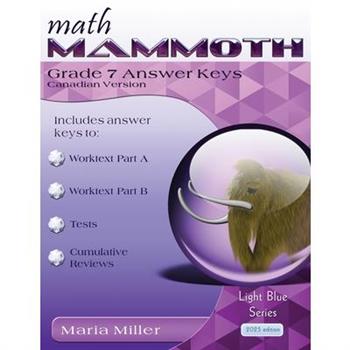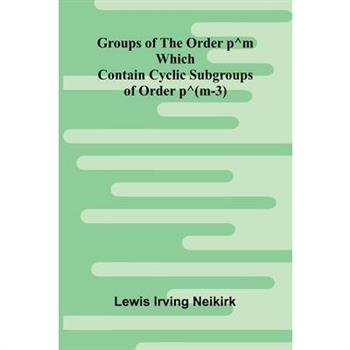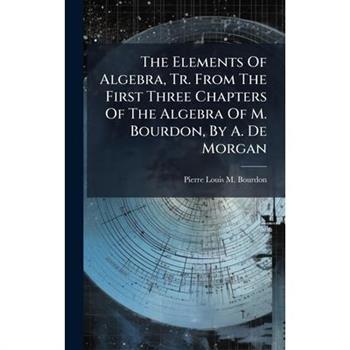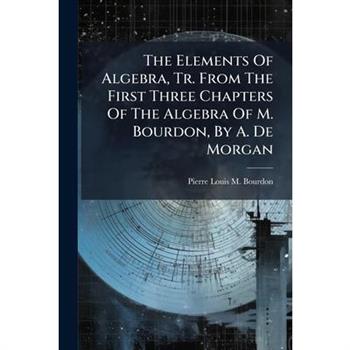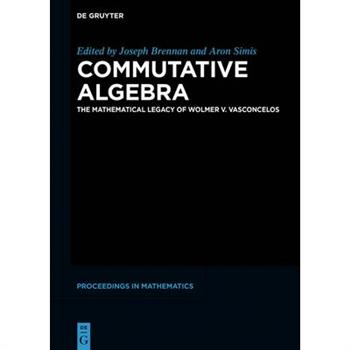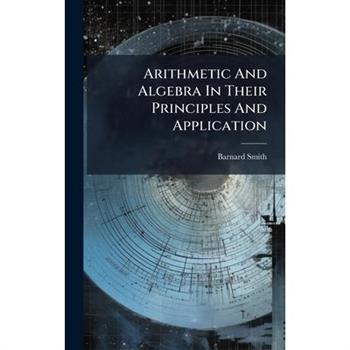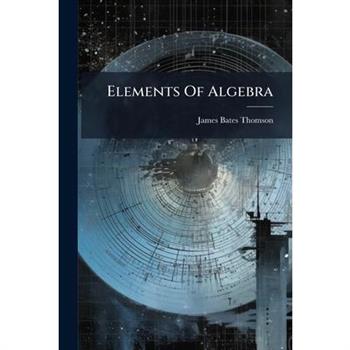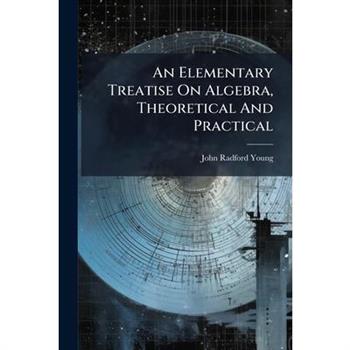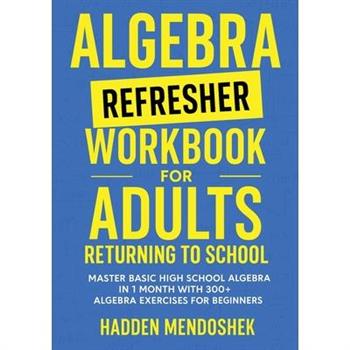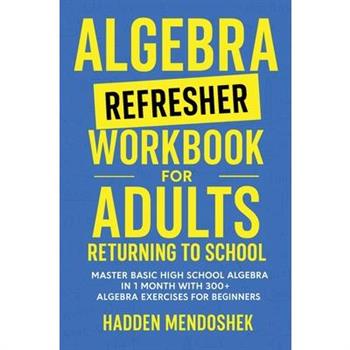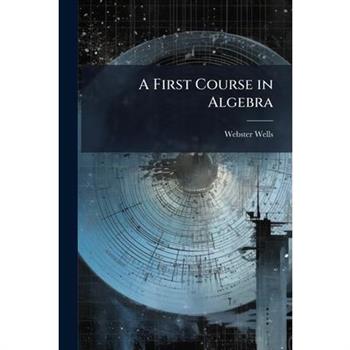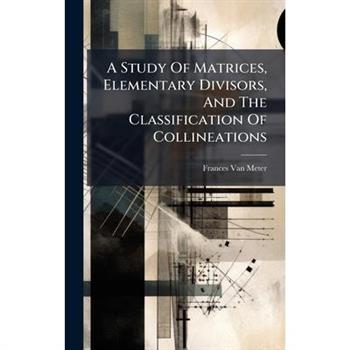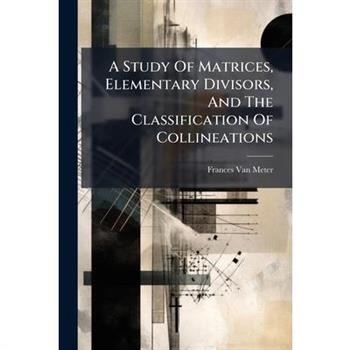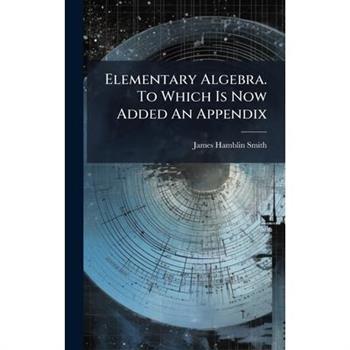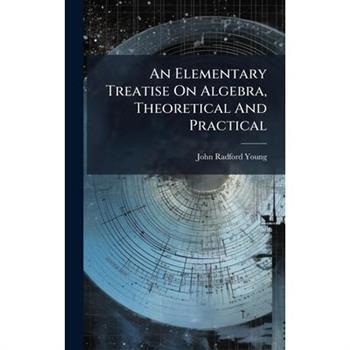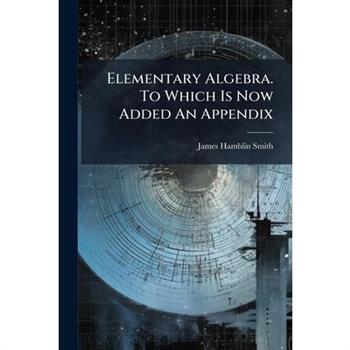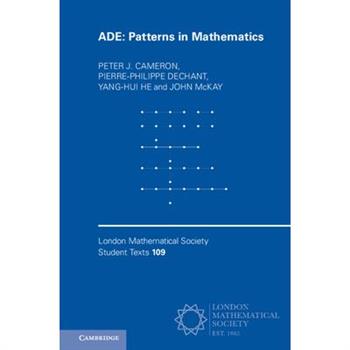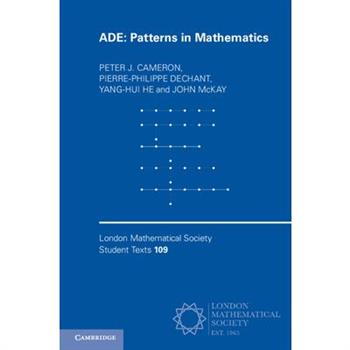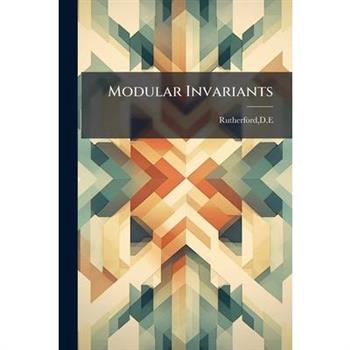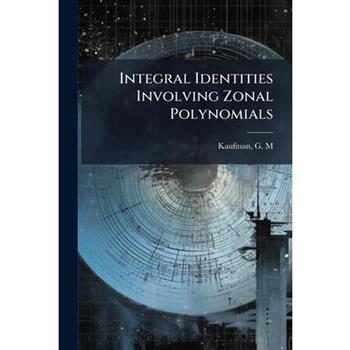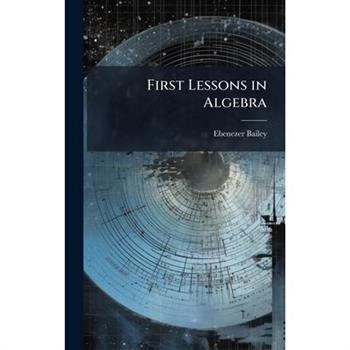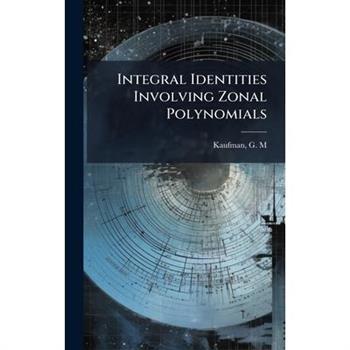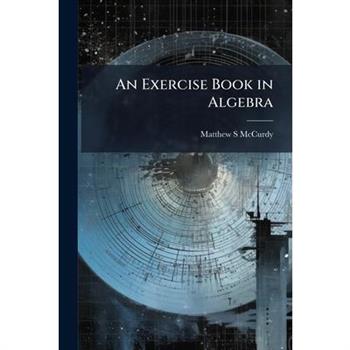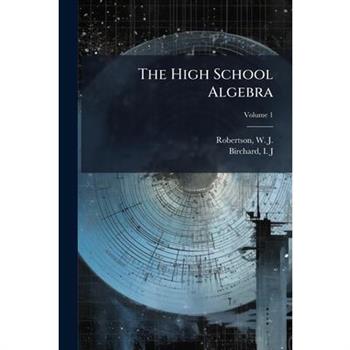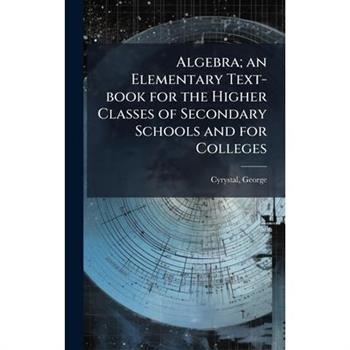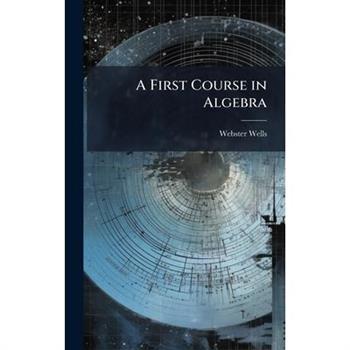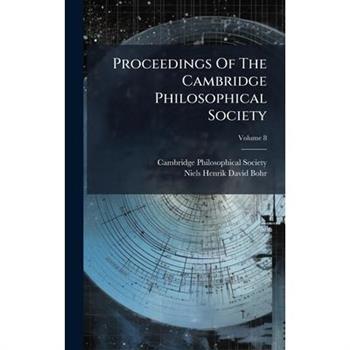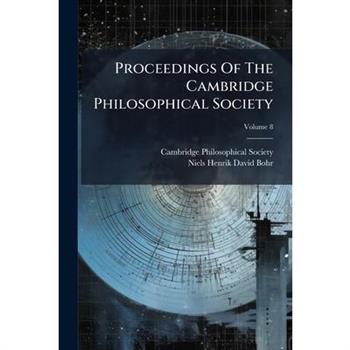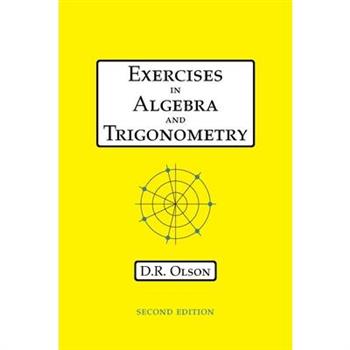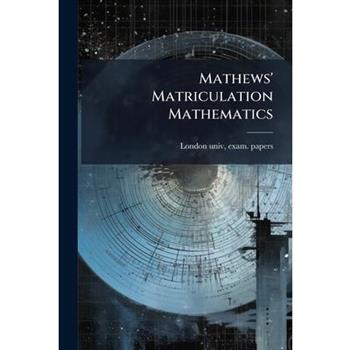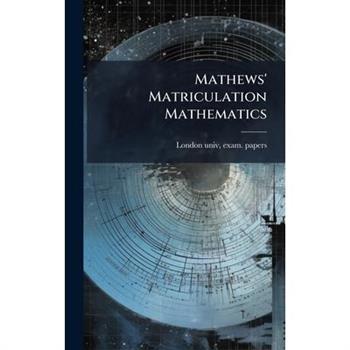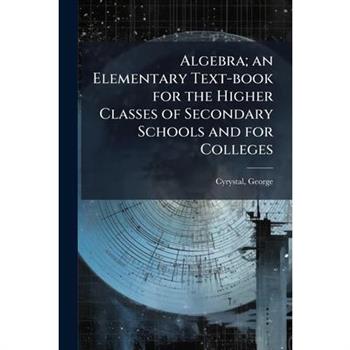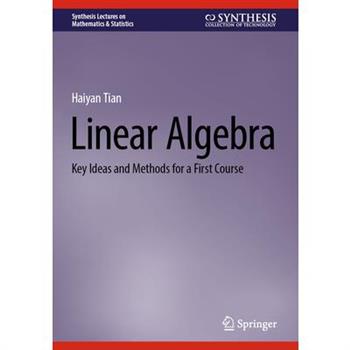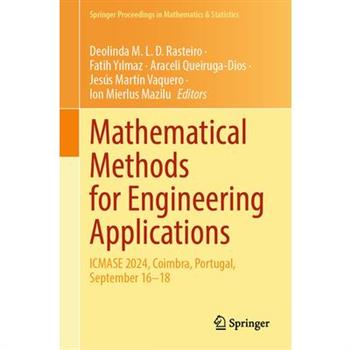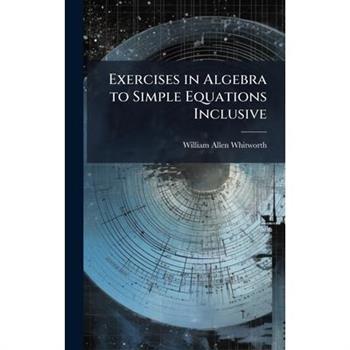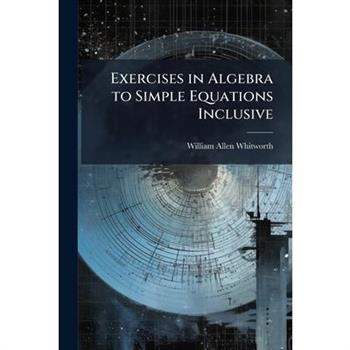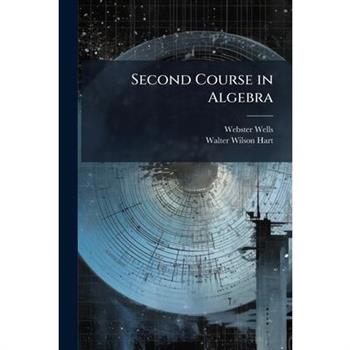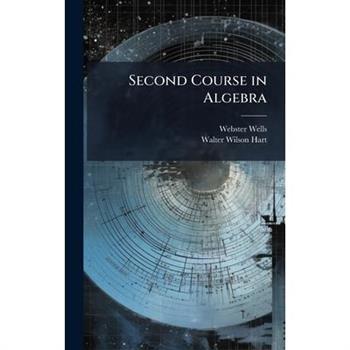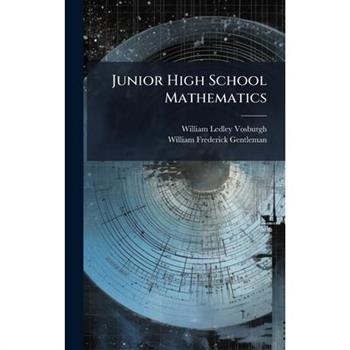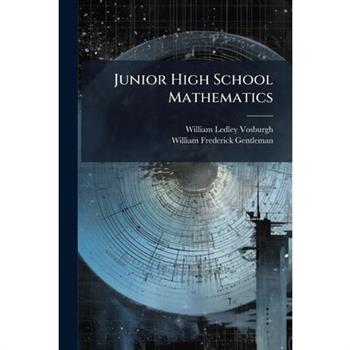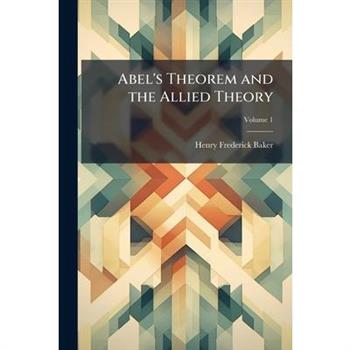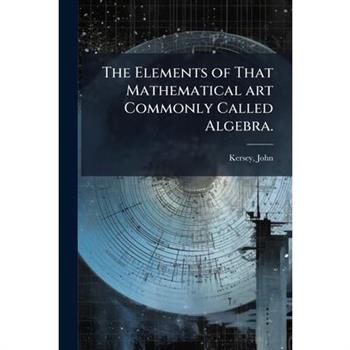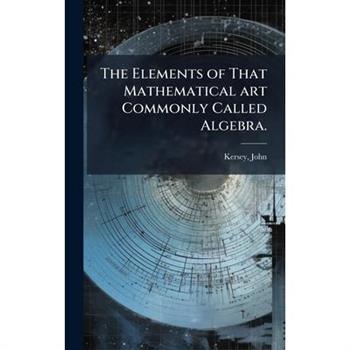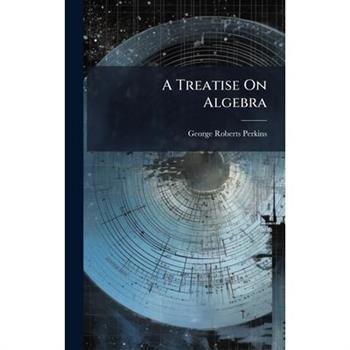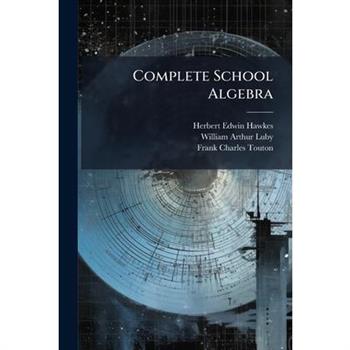Math Mammoth Grade 7 Answer Keys, Canadian Version
Math Mammoth Grade 7 Answer Keys (2025 edition, Canadian Version) contains answers to Math Mammoth Grade 7-A and 7-B student worktexts, to chapter tests, to the end-of-year test, and to the cumulative review lessons. This is the full-color version.
Enterprise Transformation
Hello, I'm Jerry Torres. Over 75% of all enterprise transformation initiatives fail. This means they're halted before solutions are delivered but not before substantial time, money, resources and confidence are lost and wasted. Those that do succeed are mostly second, third or fourth go-rounds of previously failed efforts. Transformation program failure doesn't discriminate. It's common to both public and commercial sector enterprises and to every business space regardless of the initiative's size, location, complexity, cost or objectives.Whether you're transforming the fundamental ways you conduct and carry out business processes or procedures or enforce standards of performance; redefine your organizational or team structures; integrate emerging or cutting edge technologies such as Artificial Intelligence (AI), Robotics or Quantum solutions; transition from traditional Data Center or Network Operation Center (NOC) to Cloud Based Computing (CBC) architectures; or re-define your business cultures, values or belief systems, your enterprise faces momentous challenges and roadblocks to success. This book provides the magic you need to achieve your transformational objectives. This book is a practical methodological guide that defines how to deliver transformational enterprise solutions right the first time. This approach, named "Enterprise Transformation Methodology" (ETM), details proven practices that consistently result in comprehensive, sustained, precise and predictable results. It also describes the forces and dynamics that cause initiatives to fail and explains how to avoid, mitigate and manage them. Initiatives that succeed almost always protect themselves against these challenges, while those that fall victim to them fail.
Groups Of The Order P^M Which Contain Cyclic Subgroups Of Order P^(M-3)
A hidden cornerstone of algebra returns rediscovered, restored, and reborn by Alpha Editions. Groups Of The Order P^M Which Contain Cyclic Subgroups Of Order P^(M-3) is a rigorous, illuminating classic in mathematical group theory that probes the fine architecture of p-groups and their internal symmetries. This compact yet deep work guides readers through a precise analysis of order P^M groups, centering on P^(M-3) subgroup analysis and the role of cyclic subgroups in shaping algebraic structures. With clear proofs, carefully classified cases, and thoughtful exploration of cyclic group properties, Neikirk s group theory investigation advances subgroup classification and group order analysis in ways that still inform contemporary research. Scholars will find exacting results and techniques; curious learners will discover the logic and beauty behind abstract algebra. Historically significant and long out of print, this edition has been restored for today s and future generations. Alpha Editions presents more than a reprint this is a collector s item and a cultural treasure, prepared for mathematicians, libraries, and lovers of classic mathematical research alike. Whether you re assembling a reference shelf or seeking clarity on advanced mathematics, this volume offers enduring insight into algebraic structures and the foundations of subgroup theory. Rediscover Neikirk s contributions to mathematical group theory a must-have for anyone passionate about cyclic subgroups, subgroup classification, and the anatomy of p-groups.
The Elements Of Algebra, Tr. From The First Three Chapters Of The Algebra Of M. Bourdon, By A. De Morgan
"The Elements Of Algebra, Tr. From The First Three Chapters Of The Algebra Of M. Bourdon, By A. De Morgan" presents an English translation of the foundational chapters of M. Bourdon's influential algebra textbook. This historical text offers insights into mathematical education and algebraic principles as they were understood in the early 19th century. The work, translated by the eminent mathematician Augustus De Morgan, provides a valuable resource for understanding the development of algebraic thought and pedagogical methods. It remains relevant for historians of mathematics and those interested in the evolution of mathematical teaching techniques.This work has been selected by scholars as being culturally important, and is part of the knowledge base of civilization as we know it. This work was reproduced from the original artifact, and remains as true to the original work as possible. Therefore, you will see the original copyright references, library stamps (as most of these works have been housed in our most important libraries around the world), and other notations in the work.This work is in the public domain in the United States of America, and possibly other nations. Within the United States, you may freely copy and distribute this work, as no entity (individual or corporate) has a copyright on the body of the work.As a reproduction of a historical artifact, this work may contain missing or blurred pages, poor pictures, errant marks, etc. Scholars believe, and we concur, that this work is important enough to be preserved, reproduced, and made generally available to the public. We appreciate your support of the preservation process, and thank you for being an important part of keeping this knowledge alive and relevant.
The Elements Of Algebra, Tr. From The First Three Chapters Of The Algebra Of M. Bourdon, By A. De Morgan
"The Elements Of Algebra, Tr. From The First Three Chapters Of The Algebra Of M. Bourdon, By A. De Morgan" presents an English translation of the foundational chapters of M. Bourdon's influential algebra textbook. This historical text offers insights into mathematical education and algebraic principles as they were understood in the early 19th century. The work, translated by the eminent mathematician Augustus De Morgan, provides a valuable resource for understanding the development of algebraic thought and pedagogical methods. It remains relevant for historians of mathematics and those interested in the evolution of mathematical teaching techniques.This work has been selected by scholars as being culturally important, and is part of the knowledge base of civilization as we know it. This work was reproduced from the original artifact, and remains as true to the original work as possible. Therefore, you will see the original copyright references, library stamps (as most of these works have been housed in our most important libraries around the world), and other notations in the work.This work is in the public domain in the United States of America, and possibly other nations. Within the United States, you may freely copy and distribute this work, as no entity (individual or corporate) has a copyright on the body of the work.As a reproduction of a historical artifact, this work may contain missing or blurred pages, poor pictures, errant marks, etc. Scholars believe, and we concur, that this work is important enough to be preserved, reproduced, and made generally available to the public. We appreciate your support of the preservation process, and thank you for being an important part of keeping this knowledge alive and relevant.
Commutative Algebra
Wolmer Vasconcelos was one of the giants in the development of Commutative Algebra in the latter half of the twentieth century and the first decades of the twenty-first century. This work collects in one place essays illustrating the important developments of his work particularly in commutative algebra that permits the reader to see the development of his important ideas and how they influence the development of mathematics today.
Arithmetic And Algebra In Their Principles And Application
"Arithmetic and Algebra In Their Principles and Application" is a comprehensive guide designed to elucidate the fundamental principles of arithmetic and algebra. Intended for students and educators alike, this book offers a systematic approach to understanding and applying mathematical concepts. Starting with basic arithmetic operations and progressing to more complex algebraic equations, the text provides clear explanations and numerous examples to reinforce learning.This book emphasizes the importance of a strong foundation in mathematics and aims to develop problem-solving skills. Whether used as a textbook or for self-study, "Arithmetic and Algebra" serves as an invaluable resource for mastering essential mathematical techniques.This work has been selected by scholars as being culturally important, and is part of the knowledge base of civilization as we know it. This work was reproduced from the original artifact, and remains as true to the original work as possible. Therefore, you will see the original copyright references, library stamps (as most of these works have been housed in our most important libraries around the world), and other notations in the work.This work is in the public domain in the United States of America, and possibly other nations. Within the United States, you may freely copy and distribute this work, as no entity (individual or corporate) has a copyright on the body of the work.As a reproduction of a historical artifact, this work may contain missing or blurred pages, poor pictures, errant marks, etc. Scholars believe, and we concur, that this work is important enough to be preserved, reproduced, and made generally available to the public. We appreciate your support of the preservation process, and thank you for being an important part of keeping this knowledge alive and relevant.
Elements Of Algebra
"Elements Of Algebra: An Abridgment Of Day's Algebra" is a classic textbook designed to introduce students to the fundamental principles of algebra. Authored by James Bates Thomson, this book offers a structured and comprehensive approach to learning algebraic concepts, making it suitable for both classroom instruction and self-study. The book covers essential topics in algebra, providing clear explanations and numerous examples to aid understanding. Its abridged format makes it a concise yet thorough resource for students seeking to build a strong foundation in algebraic problem-solving. This work has been selected by scholars as being culturally important, and is part of the knowledge base of civilization as we know it. This work was reproduced from the original artifact, and remains as true to the original work as possible. Therefore, you will see the original copyright references, library stamps (as most of these works have been housed in our most important libraries around the world), and other notations in the work.This work is in the public domain in the United States of America, and possibly other nations. Within the United States, you may freely copy and distribute this work, as no entity (individual or corporate) has a copyright on the body of the work.As a reproduction of a historical artifact, this work may contain missing or blurred pages, poor pictures, errant marks, etc. Scholars believe, and we concur, that this work is important enough to be preserved, reproduced, and made generally available to the public. We appreciate your support of the preservation process, and thank you for being an important part of keeping this knowledge alive and relevant.
An Elementary Treatise On Algebra, Theoretical And Practical
"An Elementary Treatise On Algebra, Theoretical And Practical" by John Radford Young is a comprehensive guide designed to simplify the study of algebra for students. This book provides a thorough exploration of algebraic principles, combining theoretical knowledge with practical applications. Intended for classroom use, the treatise includes explanations and methods to clarify challenging concepts. Young's approach aims to make algebra accessible, enabling students to build a solid foundation in the subject. This work remains valuable for those seeking a clear and methodical introduction to algebra.This work has been selected by scholars as being culturally important, and is part of the knowledge base of civilization as we know it. This work was reproduced from the original artifact, and remains as true to the original work as possible. Therefore, you will see the original copyright references, library stamps (as most of these works have been housed in our most important libraries around the world), and other notations in the work.This work is in the public domain in the United States of America, and possibly other nations. Within the United States, you may freely copy and distribute this work, as no entity (individual or corporate) has a copyright on the body of the work.As a reproduction of a historical artifact, this work may contain missing or blurred pages, poor pictures, errant marks, etc. Scholars believe, and we concur, that this work is important enough to be preserved, reproduced, and made generally available to the public. We appreciate your support of the preservation process, and thank you for being an important part of keeping this knowledge alive and relevant.
Algebra Refresher Workbook for Adults Returning to School
Struggling to remember the algebra you haven't touched since high school-just when that placement test is around the corner?Do you dread being the oldest student in class-only to freeze when the instructor writes 2x + 3 = 9 on the board?⭐️ 1st BONUS: 1-PAGE SCIENTIFIC CALCULATOR GUIDE⭐️ 2nd BONUS: FORMULA SHEET FOR BOOK⭐️ 3rd BONUS: WE'LL SOLVE A PROBLEM FOR YOUIf so, Algebra Refresher Workbook for Adults Returning to School is the reboot every busy learner needs. Drawing on a decade as an engineer and more than 10 years tutoring adult students, Hadden Mendoshek has distilled the most essential algebra skills into a 30-day, 30-worksheet program that fits into coffee breaks-not semesters.Inside this workbook, readers will discover: A complete 30-day road map that guides learners from integers to linear equations without guesswork.300 carefully sequenced problems-each spaced for comfortable, uncluttered work.Step-by-step walkthroughs that model exactly how to solve every type of question.Guided examples that act as an on-page tutor before the learner tries solo practice.Progressively tougher drills that build confidence one small victory at a time.Real-world applications showing how solving for x saves money, time, and stress.Handy reference sheets for formulas, properties, and number rules.Answer key for every problem.Visual aids and graphs for learners who absorb information best through images......
Algebra Refresher Workbook for Adults Returning to School
Struggling to remember the algebra you haven't touched since high school-just when that placement test is around the corner?Do you dread being the oldest student in class-only to freeze when the instructor writes 2x + 3 = 9 on the board?⭐️ 1st BONUS: 1-PAGE SCIENTIFIC CALCULATOR GUIDE⭐️ 2nd BONUS: FORMULA SHEET FOR BOOK⭐️ 3rd BONUS: WE'LL SOLVE A PROBLEM FOR YOUIf so, Algebra Refresher Workbook for Adults Returning to School is the reboot every busy learner needs. Drawing on a decade as an engineer and more than 10 years tutoring adult students, Hadden Mendoshek has distilled the most essential algebra skills into a 30-day, 30-worksheet program that fits into coffee breaks-not semesters.Inside this workbook, readers will discover: A complete 30-day road map that guides learners from integers to linear equations without guesswork.300 carefully sequenced problems-each spaced for comfortable, uncluttered work.Step-by-step walkthroughs that model exactly how to solve every type of question.Guided examples that act as an on-page tutor before the learner tries solo practice.Progressively tougher drills that build confidence one small victory at a time.Real-world applications showing how solving for x saves money, time, and stress.Handy reference sheets for formulas, properties, and number rules.Answer key for every problem.Visual aids and graphs for learners who absorb information best through images.....
A First Course in Algebra
"A First Course in Algebra," originally published in 1908, offers a comprehensive introduction to algebraic principles and problem-solving techniques. Designed for students beginning their study of algebra, this text provides a systematic approach to understanding fundamental concepts. Webster Wells, a prominent mathematics educator, presents clear explanations and numerous examples to aid comprehension. The book covers essential topics such as equations, polynomials, factoring, and radicals, laying a solid foundation for further mathematical studies. This edition retains the original content, ensuring that readers experience the timeless methods of teaching algebra that have proven effective for generations. This book is valuable for students, educators, and anyone interested in the historical development of mathematical education.This work has been selected by scholars as being culturally important, and is part of the knowledge base of civilization as we know it. This work was reproduced from the original artifact, and remains as true to the original work as possible. Therefore, you will see the original copyright references, library stamps (as most of these works have been housed in our most important libraries around the world), and other notations in the work.This work is in the public domain in the United States of America, and possibly other nations. Within the United States, you may freely copy and distribute this work, as no entity (individual or corporate) has a copyright on the body of the work.As a reproduction of a historical artifact, this work may contain missing or blurred pages, poor pictures, errant marks, etc. Scholars believe, and we concur, that this work is important enough to be preserved, reproduced, and made generally available to the public. We appreciate your support of the preservation process, and thank you for being an important part of keeping this knowledge alive and relevant.
A Study Of Matrices, Elementary Divisors, And The Classification Of Collineations
"A Study Of Matrices, Elementary Divisors, And The Classification Of Collineations" offers a rigorous exploration of advanced mathematical concepts. This book delves into the intricacies of matrix theory, providing a detailed analysis of elementary divisors and their applications. A significant portion of the work is dedicated to the classification of collineations, offering a comprehensive understanding of these transformations. Suitable for advanced students and researchers in mathematics, this text provides a thorough treatment of key algebraic topics. Frances Van Meter's work is an invaluable resource for anyone seeking a deeper understanding of matrices and their role in classifying geometric transformations.This work has been selected by scholars as being culturally important, and is part of the knowledge base of civilization as we know it. This work was reproduced from the original artifact, and remains as true to the original work as possible. Therefore, you will see the original copyright references, library stamps (as most of these works have been housed in our most important libraries around the world), and other notations in the work.This work is in the public domain in the United States of America, and possibly other nations. Within the United States, you may freely copy and distribute this work, as no entity (individual or corporate) has a copyright on the body of the work.As a reproduction of a historical artifact, this work may contain missing or blurred pages, poor pictures, errant marks, etc. Scholars believe, and we concur, that this work is important enough to be preserved, reproduced, and made generally available to the public. We appreciate your support of the preservation process, and thank you for being an important part of keeping this knowledge alive and relevant.
A Study Of Matrices, Elementary Divisors, And The Classification Of Collineations
"A Study Of Matrices, Elementary Divisors, And The Classification Of Collineations" offers a rigorous exploration of advanced mathematical concepts. This book delves into the intricacies of matrix theory, providing a detailed analysis of elementary divisors and their applications. A significant portion of the work is dedicated to the classification of collineations, offering a comprehensive understanding of these transformations. Suitable for advanced students and researchers in mathematics, this text provides a thorough treatment of key algebraic topics. Frances Van Meter's work is an invaluable resource for anyone seeking a deeper understanding of matrices and their role in classifying geometric transformations.This work has been selected by scholars as being culturally important, and is part of the knowledge base of civilization as we know it. This work was reproduced from the original artifact, and remains as true to the original work as possible. Therefore, you will see the original copyright references, library stamps (as most of these works have been housed in our most important libraries around the world), and other notations in the work.This work is in the public domain in the United States of America, and possibly other nations. Within the United States, you may freely copy and distribute this work, as no entity (individual or corporate) has a copyright on the body of the work.As a reproduction of a historical artifact, this work may contain missing or blurred pages, poor pictures, errant marks, etc. Scholars believe, and we concur, that this work is important enough to be preserved, reproduced, and made generally available to the public. We appreciate your support of the preservation process, and thank you for being an important part of keeping this knowledge alive and relevant.
Elementary Algebra. To Which Is Now Added An Appendix
"Elementary Algebra. To Which Is Now Added An Appendix" by James Hamblin Smith is a comprehensive algebra textbook designed for students seeking a solid foundation in algebraic principles. This edition includes an appendix, enhancing its value as a learning resource. The book provides a clear and methodical approach to understanding algebraic concepts, making it suitable for both classroom use and self-study. Its detailed explanations and numerous examples help to reinforce learning and build confidence in problem-solving. This textbook remains a valuable resource for anyone studying elementary algebra.This work has been selected by scholars as being culturally important, and is part of the knowledge base of civilization as we know it. This work was reproduced from the original artifact, and remains as true to the original work as possible. Therefore, you will see the original copyright references, library stamps (as most of these works have been housed in our most important libraries around the world), and other notations in the work.This work is in the public domain in the United States of America, and possibly other nations. Within the United States, you may freely copy and distribute this work, as no entity (individual or corporate) has a copyright on the body of the work.As a reproduction of a historical artifact, this work may contain missing or blurred pages, poor pictures, errant marks, etc. Scholars believe, and we concur, that this work is important enough to be preserved, reproduced, and made generally available to the public. We appreciate your support of the preservation process, and thank you for being an important part of keeping this knowledge alive and relevant.
An Elementary Treatise On Algebra, Theoretical And Practical
"An Elementary Treatise On Algebra, Theoretical And Practical" by John Radford Young is a comprehensive guide designed to simplify the study of algebra for students. This book provides a thorough exploration of algebraic principles, combining theoretical knowledge with practical applications. Intended for classroom use, the treatise includes explanations and methods to clarify challenging concepts. Young's approach aims to make algebra accessible, enabling students to build a solid foundation in the subject. This work remains valuable for those seeking a clear and methodical introduction to algebra.This work has been selected by scholars as being culturally important, and is part of the knowledge base of civilization as we know it. This work was reproduced from the original artifact, and remains as true to the original work as possible. Therefore, you will see the original copyright references, library stamps (as most of these works have been housed in our most important libraries around the world), and other notations in the work.This work is in the public domain in the United States of America, and possibly other nations. Within the United States, you may freely copy and distribute this work, as no entity (individual or corporate) has a copyright on the body of the work.As a reproduction of a historical artifact, this work may contain missing or blurred pages, poor pictures, errant marks, etc. Scholars believe, and we concur, that this work is important enough to be preserved, reproduced, and made generally available to the public. We appreciate your support of the preservation process, and thank you for being an important part of keeping this knowledge alive and relevant.
Elementary Algebra. To Which Is Now Added An Appendix
"Elementary Algebra. To Which Is Now Added An Appendix" by James Hamblin Smith is a comprehensive algebra textbook designed for students seeking a solid foundation in algebraic principles. This edition includes an appendix, enhancing its value as a learning resource. The book provides a clear and methodical approach to understanding algebraic concepts, making it suitable for both classroom use and self-study. Its detailed explanations and numerous examples help to reinforce learning and build confidence in problem-solving. This textbook remains a valuable resource for anyone studying elementary algebra.This work has been selected by scholars as being culturally important, and is part of the knowledge base of civilization as we know it. This work was reproduced from the original artifact, and remains as true to the original work as possible. Therefore, you will see the original copyright references, library stamps (as most of these works have been housed in our most important libraries around the world), and other notations in the work.This work is in the public domain in the United States of America, and possibly other nations. Within the United States, you may freely copy and distribute this work, as no entity (individual or corporate) has a copyright on the body of the work.As a reproduction of a historical artifact, this work may contain missing or blurred pages, poor pictures, errant marks, etc. Scholars believe, and we concur, that this work is important enough to be preserved, reproduced, and made generally available to the public. We appreciate your support of the preservation process, and thank you for being an important part of keeping this knowledge alive and relevant.
Ade
The ADE diagrams, shown on the cover, constitute one of the most universal and mysterious patterns in all of mathematics. John McKay's remarkable insights unveiled a connection between the 'double covers' of the groups of regular polyhedra, known since ancient Greek times, and the exceptional Lie algebras, recognised since the late nineteenth century. The correspondence involves the ADE diagrams being interpreted in different ways: as quivers associated with the groups and as Dynkin diagrams of root systems of Lie algebras. The ADE diagrams arise in many areas of mathematics, including topics in algebraic geometry, string theory, spectral theory of graphs and cluster algebras. Accessible to students, this book explains these connections with exercises and examples throughout. An excellent introduction for students and researchers wishing to learn more about this unifying principle of mathematics, it also presents standard undergraduate material from a novel perspective.
Ade
The ADE diagrams, shown on the cover, constitute one of the most universal and mysterious patterns in all of mathematics. John McKay's remarkable insights unveiled a connection between the 'double covers' of the groups of regular polyhedra, known since ancient Greek times, and the exceptional Lie algebras, recognised since the late nineteenth century. The correspondence involves the ADE diagrams being interpreted in different ways: as quivers associated with the groups and as Dynkin diagrams of root systems of Lie algebras. The ADE diagrams arise in many areas of mathematics, including topics in algebraic geometry, string theory, spectral theory of graphs and cluster algebras. Accessible to students, this book explains these connections with exercises and examples throughout. An excellent introduction for students and researchers wishing to learn more about this unifying principle of mathematics, it also presents standard undergraduate material from a novel perspective.
Modular Invariants
"Modular Invariants" explores the mathematical theory surrounding invariants, particularly within the context of modular arithmetic and group theory. Authored by D.E. Rutherford, this work delves into the abstract algebraic structures and their applications in various mathematical and physical contexts. The book likely covers topics such as group representations, symmetric functions, and the calculation and classification of invariants under different transformations. Intended for advanced students and researchers in mathematics and physics, "Modular Invariants" offers a rigorous treatment of the subject, providing a foundation for further study in areas such as coding theory, cryptography, and theoretical physics. The enduring value of this work lies in its detailed exploration of fundamental mathematical principles and their relevance to modern scientific challenges.This work has been selected by scholars as being culturally important, and is part of the knowledge base of civilization as we know it. This work was reproduced from the original artifact, and remains as true to the original work as possible. Therefore, you will see the original copyright references, library stamps (as most of these works have been housed in our most important libraries around the world), and other notations in the work.This work is in the public domain in the United States of America, and possibly other nations. Within the United States, you may freely copy and distribute this work, as no entity (individual or corporate) has a copyright on the body of the work.As a reproduction of a historical artifact, this work may contain missing or blurred pages, poor pictures, errant marks, etc. Scholars believe, and we concur, that this work is important enough to be preserved, reproduced, and made generally available to the public. We appreciate your support of the preservation process, and thank you for being an important part of keeping this knowledge alive and relevant.
Integral Identities Involving Zonal Polynomials
"Integral Identities Involving Zonal Polynomials" presents a detailed exploration of integral identities within the context of zonal polynomials. This work delves into the mathematical intricacies of these special functions, offering a rigorous treatment suitable for advanced researchers and students in mathematics and statistics. The book focuses on establishing and analyzing various integral identities, providing a valuable resource for those working in multivariate analysis, combinatorics, and related fields. With a focus on theoretical development and mathematical precision, this book offers significant insights into the properties and applications of zonal polynomials.This work has been selected by scholars as being culturally important, and is part of the knowledge base of civilization as we know it. This work was reproduced from the original artifact, and remains as true to the original work as possible. Therefore, you will see the original copyright references, library stamps (as most of these works have been housed in our most important libraries around the world), and other notations in the work.This work is in the public domain in the United States of America, and possibly other nations. Within the United States, you may freely copy and distribute this work, as no entity (individual or corporate) has a copyright on the body of the work.As a reproduction of a historical artifact, this work may contain missing or blurred pages, poor pictures, errant marks, etc. Scholars believe, and we concur, that this work is important enough to be preserved, reproduced, and made generally available to the public. We appreciate your support of the preservation process, and thank you for being an important part of keeping this knowledge alive and relevant.
First Lessons in Algebra
"First Lessons in Algebra" by Ebenezer Bailey, originally published in 1841, provides a foundational introduction to the principles of algebra. Designed for students encountering algebraic concepts for the first time, this classic text offers a structured approach to learning, emphasizing clear explanations and practical exercises. Bailey's method focuses on building a strong understanding of basic operations and equations, making it an invaluable resource for both students and educators. Though written in the 19th century, the core concepts remain relevant, offering insights into historical teaching methods and the enduring principles of mathematical education. A valuable addition to any mathematics education collection.This work has been selected by scholars as being culturally important, and is part of the knowledge base of civilization as we know it. This work was reproduced from the original artifact, and remains as true to the original work as possible. Therefore, you will see the original copyright references, library stamps (as most of these works have been housed in our most important libraries around the world), and other notations in the work.This work is in the public domain in the United States of America, and possibly other nations. Within the United States, you may freely copy and distribute this work, as no entity (individual or corporate) has a copyright on the body of the work.As a reproduction of a historical artifact, this work may contain missing or blurred pages, poor pictures, errant marks, etc. Scholars believe, and we concur, that this work is important enough to be preserved, reproduced, and made generally available to the public. We appreciate your support of the preservation process, and thank you for being an important part of keeping this knowledge alive and relevant.
Integral Identities Involving Zonal Polynomials
"Integral Identities Involving Zonal Polynomials" presents a detailed exploration of integral identities within the context of zonal polynomials. This work delves into the mathematical intricacies of these special functions, offering a rigorous treatment suitable for advanced researchers and students in mathematics and statistics. The book focuses on establishing and analyzing various integral identities, providing a valuable resource for those working in multivariate analysis, combinatorics, and related fields. With a focus on theoretical development and mathematical precision, this book offers significant insights into the properties and applications of zonal polynomials.This work has been selected by scholars as being culturally important, and is part of the knowledge base of civilization as we know it. This work was reproduced from the original artifact, and remains as true to the original work as possible. Therefore, you will see the original copyright references, library stamps (as most of these works have been housed in our most important libraries around the world), and other notations in the work.This work is in the public domain in the United States of America, and possibly other nations. Within the United States, you may freely copy and distribute this work, as no entity (individual or corporate) has a copyright on the body of the work.As a reproduction of a historical artifact, this work may contain missing or blurred pages, poor pictures, errant marks, etc. Scholars believe, and we concur, that this work is important enough to be preserved, reproduced, and made generally available to the public. We appreciate your support of the preservation process, and thank you for being an important part of keeping this knowledge alive and relevant.
An Exercise Book in Algebra
An Exercise Book in Algebra, by Matthew S. McCurdy, is a comprehensive collection of algebraic problems and exercises designed to reinforce fundamental concepts. Originally published in 1904, this book serves as a valuable resource for students seeking to solidify their understanding of algebra through practice. It offers a wide range of exercises covering various topics, from basic equations to more advanced concepts. This book provides ample opportunity for students to hone their skills and develop a deeper understanding of algebraic principles. Suitable for classroom use or self-study, "An Exercise Book in Algebra" remains a relevant and practical guide for anyone looking to master this essential branch of mathematics.This work has been selected by scholars as being culturally important, and is part of the knowledge base of civilization as we know it. This work was reproduced from the original artifact, and remains as true to the original work as possible. Therefore, you will see the original copyright references, library stamps (as most of these works have been housed in our most important libraries around the world), and other notations in the work.This work is in the public domain in the United States of America, and possibly other nations. Within the United States, you may freely copy and distribute this work, as no entity (individual or corporate) has a copyright on the body of the work.As a reproduction of a historical artifact, this work may contain missing or blurred pages, poor pictures, errant marks, etc. Scholars believe, and we concur, that this work is important enough to be preserved, reproduced, and made generally available to the public. We appreciate your support of the preservation process, and thank you for being an important part of keeping this knowledge alive and relevant.
The High School Algebra
"The High School Algebra, Part I," Volume 1, offers a comprehensive introduction to algebraic principles. Designed for secondary education, this book provides a structured approach to understanding fundamental concepts. Authored by W. J. Robertson and I. J. Birchard, this volume serves as an invaluable resource for students embarking on their algebraic journey. Originally published in 1886, this edition retains its historical context and pedagogical value, offering a glimpse into 19th-century mathematical education. "The High School Algebra" delivers clear explanations and methodical exercises suitable for classroom instruction or self-study, ensuring a solid foundation in algebra.This work has been selected by scholars as being culturally important, and is part of the knowledge base of civilization as we know it. This work was reproduced from the original artifact, and remains as true to the original work as possible. Therefore, you will see the original copyright references, library stamps (as most of these works have been housed in our most important libraries around the world), and other notations in the work.This work is in the public domain in the United States of America, and possibly other nations. Within the United States, you may freely copy and distribute this work, as no entity (individual or corporate) has a copyright on the body of the work.As a reproduction of a historical artifact, this work may contain missing or blurred pages, poor pictures, errant marks, etc. Scholars believe, and we concur, that this work is important enough to be preserved, reproduced, and made generally available to the public. We appreciate your support of the preservation process, and thank you for being an important part of keeping this knowledge alive and relevant.
Algebra; an Elementary Text-book for the Higher Classes of Secondary Schools and for Colleges
"Algebra; an Elementary Text-book for the Higher Classes of Secondary Schools and for Colleges" by George Crystal is a comprehensive algebra textbook originally published in 1888. Designed for advanced secondary students and college undergraduates, this book offers a rigorous and thorough exploration of algebraic principles. Its detailed explanations and numerous examples make it an invaluable resource for students seeking a solid foundation in algebra. This edition retains the original content, ensuring that readers can benefit from Crystal's clear and systematic approach to the subject, making it a valuable addition to any mathematics library.This work has been selected by scholars as being culturally important, and is part of the knowledge base of civilization as we know it. This work was reproduced from the original artifact, and remains as true to the original work as possible. Therefore, you will see the original copyright references, library stamps (as most of these works have been housed in our most important libraries around the world), and other notations in the work.This work is in the public domain in the United States of America, and possibly other nations. Within the United States, you may freely copy and distribute this work, as no entity (individual or corporate) has a copyright on the body of the work.As a reproduction of a historical artifact, this work may contain missing or blurred pages, poor pictures, errant marks, etc. Scholars believe, and we concur, that this work is important enough to be preserved, reproduced, and made generally available to the public. We appreciate your support of the preservation process, and thank you for being an important part of keeping this knowledge alive and relevant.
A First Course in Algebra
"A First Course in Algebra," originally published in 1908, offers a comprehensive introduction to algebraic principles and problem-solving techniques. Designed for students beginning their study of algebra, this text provides a systematic approach to understanding fundamental concepts. Webster Wells, a prominent mathematics educator, presents clear explanations and numerous examples to aid comprehension. The book covers essential topics such as equations, polynomials, factoring, and radicals, laying a solid foundation for further mathematical studies. This edition retains the original content, ensuring that readers experience the timeless methods of teaching algebra that have proven effective for generations. This book is valuable for students, educators, and anyone interested in the historical development of mathematical education.This work has been selected by scholars as being culturally important, and is part of the knowledge base of civilization as we know it. This work was reproduced from the original artifact, and remains as true to the original work as possible. Therefore, you will see the original copyright references, library stamps (as most of these works have been housed in our most important libraries around the world), and other notations in the work.This work is in the public domain in the United States of America, and possibly other nations. Within the United States, you may freely copy and distribute this work, as no entity (individual or corporate) has a copyright on the body of the work.As a reproduction of a historical artifact, this work may contain missing or blurred pages, poor pictures, errant marks, etc. Scholars believe, and we concur, that this work is important enough to be preserved, reproduced, and made generally available to the public. We appreciate your support of the preservation process, and thank you for being an important part of keeping this knowledge alive and relevant.
Numerical Linear Algebra with Applications
Numerical Linear Algebra with Applications: Using MATLAB and Octave, Second Edition provides practical knowledge on modern computational techniques for the numerical solution of linear algebra problems. The book offers a unified presentation of computation, basic algorithm analysis, and numerical methods to compute solutions. Useful to readers regardless of background, the text begins with six introductory courses to provide background for those who haven't taken applied or theoretical linear algebra. This approach offers a thorough explanation of the issues and methods for practical computing using MATLAB as the vehicle for computation. Appropriate for advanced undergraduate and early graduate courses on numerical linear algebra, this useful textbook explores numerous applications to engineering and science.
Proceedings Of The Cambridge Philosophical Society
This volume contains the proceedings of the Cambridge Philosophical Society, covering mathematical and physical sciences. It offers a detailed record of scholarly presentations and discussions from a pivotal era in scientific inquiry. The collection provides insights into the prevailing theories, methodologies, and debates shaping the scientific landscape. Researchers and historians of science will find this volume an invaluable resource for understanding the development of mathematical and physical sciences within an influential academic society.This work has been selected by scholars as being culturally important, and is part of the knowledge base of civilization as we know it. This work was reproduced from the original artifact, and remains as true to the original work as possible. Therefore, you will see the original copyright references, library stamps (as most of these works have been housed in our most important libraries around the world), and other notations in the work.This work is in the public domain in the United States of America, and possibly other nations. Within the United States, you may freely copy and distribute this work, as no entity (individual or corporate) has a copyright on the body of the work.As a reproduction of a historical artifact, this work may contain missing or blurred pages, poor pictures, errant marks, etc. Scholars believe, and we concur, that this work is important enough to be preserved, reproduced, and made generally available to the public. We appreciate your support of the preservation process, and thank you for being an important part of keeping this knowledge alive and relevant.
Proceedings Of The Cambridge Philosophical Society
This volume contains the proceedings of the Cambridge Philosophical Society, covering mathematical and physical sciences. It offers a detailed record of scholarly presentations and discussions from a pivotal era in scientific inquiry. The collection provides insights into the prevailing theories, methodologies, and debates shaping the scientific landscape. Researchers and historians of science will find this volume an invaluable resource for understanding the development of mathematical and physical sciences within an influential academic society.This work has been selected by scholars as being culturally important, and is part of the knowledge base of civilization as we know it. This work was reproduced from the original artifact, and remains as true to the original work as possible. Therefore, you will see the original copyright references, library stamps (as most of these works have been housed in our most important libraries around the world), and other notations in the work.This work is in the public domain in the United States of America, and possibly other nations. Within the United States, you may freely copy and distribute this work, as no entity (individual or corporate) has a copyright on the body of the work.As a reproduction of a historical artifact, this work may contain missing or blurred pages, poor pictures, errant marks, etc. Scholars believe, and we concur, that this work is important enough to be preserved, reproduced, and made generally available to the public. We appreciate your support of the preservation process, and thank you for being an important part of keeping this knowledge alive and relevant.
Exercises in Algebra and Trigonometry
This book contains exercises that a student can complete to learn algebra and trigonometry. Though it is designed to serve as a companion to another book by the same author, namely Algebra and Trigonometry, the exercises herein are typical for the subjects and do not pertain exclusively to that particular text.
Mathews' Matriculation Mathematics
"Mathews' Matriculation Mathematics" is a comprehensive collection of arithmetic and algebra examination papers from 1844 to 1878. This historical compilation offers a unique glimpse into the mathematical education and testing standards of the time. Compiled by E.H. Mathews, the book provides a valuable resource for students, educators, and historians interested in the evolution of mathematical curricula.Featuring a wide range of problems and exercises, this volume showcases the mathematical knowledge expected of students during the mid-19th century. With answers included, "Mathews' Matriculation Mathematics" serves as an important reference for understanding the development of mathematical education and assessment practices.This work has been selected by scholars as being culturally important, and is part of the knowledge base of civilization as we know it. This work was reproduced from the original artifact, and remains as true to the original work as possible. Therefore, you will see the original copyright references, library stamps (as most of these works have been housed in our most important libraries around the world), and other notations in the work.This work is in the public domain in the United States of America, and possibly other nations. Within the United States, you may freely copy and distribute this work, as no entity (individual or corporate) has a copyright on the body of the work.As a reproduction of a historical artifact, this work may contain missing or blurred pages, poor pictures, errant marks, etc. Scholars believe, and we concur, that this work is important enough to be preserved, reproduced, and made generally available to the public. We appreciate your support of the preservation process, and thank you for being an important part of keeping this knowledge alive and relevant.
Mathews' Matriculation Mathematics
"Mathews' Matriculation Mathematics" is a comprehensive collection of arithmetic and algebra examination papers from 1844 to 1878. This historical compilation offers a unique glimpse into the mathematical education and testing standards of the time. Compiled by E.H. Mathews, the book provides a valuable resource for students, educators, and historians interested in the evolution of mathematical curricula.Featuring a wide range of problems and exercises, this volume showcases the mathematical knowledge expected of students during the mid-19th century. With answers included, "Mathews' Matriculation Mathematics" serves as an important reference for understanding the development of mathematical education and assessment practices.This work has been selected by scholars as being culturally important, and is part of the knowledge base of civilization as we know it. This work was reproduced from the original artifact, and remains as true to the original work as possible. Therefore, you will see the original copyright references, library stamps (as most of these works have been housed in our most important libraries around the world), and other notations in the work.This work is in the public domain in the United States of America, and possibly other nations. Within the United States, you may freely copy and distribute this work, as no entity (individual or corporate) has a copyright on the body of the work.As a reproduction of a historical artifact, this work may contain missing or blurred pages, poor pictures, errant marks, etc. Scholars believe, and we concur, that this work is important enough to be preserved, reproduced, and made generally available to the public. We appreciate your support of the preservation process, and thank you for being an important part of keeping this knowledge alive and relevant.
Noncommutative Measures and LP and Orlicz Spaces, with Applications to Quantum Physics
The theory of noncommutative Haagerup ��sup��/sup and Orlicz spaces is an important tool in both Quantum Harmonic Analysis and Mathematical Physics. Indeed, noncommutativity is arguably the raison-d'礙tre of the Heisenberg approach to quantum mechanics. Just as classical analysis formed the foundation for classical mechanics, a mature response to the challenges posed by quantum mechanics (from the Heisenberg perspective) similarly needs to be built on a well-developed foundation of noncommutative analysis. In the passage from the classical to the quantum setting, functions get replaced with (possibly noncommuting) operators. Von Neumann himself realised early on that some sort of noncommutative integral calculus tailored to this setting is therefore needed to meet this challenge. This book seeks to help address this need. The noncommutative Orlicz spaces presented here help in dealing with observable quantities and entropy. Goldstein and Labuschagne provide a detailed account of the current theories in a way that is useful and accessible to a wide range of readers, from graduate students to advanced users. Beginning with some foundational examples intended to build intuition for the theory to follow, including the theory of noncommutative decreasing arrangements, as developed by Fack and Kosaki, and of Orlicz spaces for general von Neumann algebras. The authors then present the theory of the more accessible tracial case, followed by that of the more demanding general (type III) case. The final part of the book is devoted to advanced theory and applications.
Algebra; an Elementary Text-book for the Higher Classes of Secondary Schools and for Colleges
"Algebra; an Elementary Text-book for the Higher Classes of Secondary Schools and for Colleges" by George Crystal is a comprehensive algebra textbook originally published in 1888. Designed for advanced secondary students and college undergraduates, this book offers a rigorous and thorough exploration of algebraic principles. Its detailed explanations and numerous examples make it an invaluable resource for students seeking a solid foundation in algebra. This edition retains the original content, ensuring that readers can benefit from Crystal's clear and systematic approach to the subject, making it a valuable addition to any mathematics library.This work has been selected by scholars as being culturally important, and is part of the knowledge base of civilization as we know it. This work was reproduced from the original artifact, and remains as true to the original work as possible. Therefore, you will see the original copyright references, library stamps (as most of these works have been housed in our most important libraries around the world), and other notations in the work.This work is in the public domain in the United States of America, and possibly other nations. Within the United States, you may freely copy and distribute this work, as no entity (individual or corporate) has a copyright on the body of the work.As a reproduction of a historical artifact, this work may contain missing or blurred pages, poor pictures, errant marks, etc. Scholars believe, and we concur, that this work is important enough to be preserved, reproduced, and made generally available to the public. We appreciate your support of the preservation process, and thank you for being an important part of keeping this knowledge alive and relevant.
Linear Algebra
This book presents algebra in a concise and clear way, allowing beginner students to quickly attain the required proficiency. As to opposed to existing books on the subject that cover too many topics, some of which are too complex and intimidating for a first course in linear algebra, this book only presents the essential topics in a more user-friendly manner. The author includes an optimized order of topics that are adapted to the learning patterns of students. In addition, carefully designed examples are presented to enhance reader confidence to master the material and to avoid frequently observed frustration. This textbook is ideal for a one semester course on basic linear algebra for college students majoring in mathematics, engineering, and other sciences.
Mathematical Methods for Engineering Applications
This proceedings volume compiles papers presented at the 5th International Conference on Mathematics and its Applications in Science and Engineering - ICMASE 2024, held on September 16-18, 2024, by the Polytechnic Institute of Coimbra, Portugal. The ICMASE 2024 was a hybrid conference, featuring both in-person and virtual attendance. The works in this volume explore recent developments in the application of mathematics to science and engineering, focusing on mathematical and computational modeling of real-world problems. Topics include algebra and number theory, analysis, geometry, statistics, computational and discrete mathematics, as well as their intersections with engineering applications. Additionally, educational aspects of mathematics in engineering fields are addressed. This volume is intended for researchers, practitioners, and graduate students, particularly those interested in advanced methods for applying mathematics across various contexts and fields.
Exercises in Algebra to Simple Equations Inclusive
"Exercises in Algebra to Simple Equations Inclusive" by William Allen Whitworth offers a comprehensive collection of algebraic problems designed to enhance understanding and proficiency. Originally published in 1875, this book provides a structured approach to learning algebra, focusing on fundamental concepts and equation-solving techniques. Designed as a resource for students and educators alike, this book offers a progressive set of exercises that build from basic principles to more complex applications. Its enduring relevance makes it a valuable addition to any mathematics library, offering insights into historical teaching methods and a solid foundation in algebra. Perfect for self-study or classroom use, this book remains a testament to the timeless principles of algebraic education. This work has been selected by scholars as being culturally important, and is part of the knowledge base of civilization as we know it. This work was reproduced from the original artifact, and remains as true to the original work as possible. Therefore, you will see the original copyright references, library stamps (as most of these works have been housed in our most important libraries around the world), and other notations in the work.This work is in the public domain in the United States of America, and possibly other nations. Within the United States, you may freely copy and distribute this work, as no entity (individual or corporate) has a copyright on the body of the work.As a reproduction of a historical artifact, this work may contain missing or blurred pages, poor pictures, errant marks, etc. Scholars believe, and we concur, that this work is important enough to be preserved, reproduced, and made generally available to the public. We appreciate your support of the preservation process, and thank you for being an important part of keeping this knowledge alive and relevant.
Exercises in Algebra to Simple Equations Inclusive
"Exercises in Algebra to Simple Equations Inclusive" by William Allen Whitworth offers a comprehensive collection of algebraic problems designed to enhance understanding and proficiency. Originally published in 1875, this book provides a structured approach to learning algebra, focusing on fundamental concepts and equation-solving techniques. Designed as a resource for students and educators alike, this book offers a progressive set of exercises that build from basic principles to more complex applications. Its enduring relevance makes it a valuable addition to any mathematics library, offering insights into historical teaching methods and a solid foundation in algebra. Perfect for self-study or classroom use, this book remains a testament to the timeless principles of algebraic education. This work has been selected by scholars as being culturally important, and is part of the knowledge base of civilization as we know it. This work was reproduced from the original artifact, and remains as true to the original work as possible. Therefore, you will see the original copyright references, library stamps (as most of these works have been housed in our most important libraries around the world), and other notations in the work.This work is in the public domain in the United States of America, and possibly other nations. Within the United States, you may freely copy and distribute this work, as no entity (individual or corporate) has a copyright on the body of the work.As a reproduction of a historical artifact, this work may contain missing or blurred pages, poor pictures, errant marks, etc. Scholars believe, and we concur, that this work is important enough to be preserved, reproduced, and made generally available to the public. We appreciate your support of the preservation process, and thank you for being an important part of keeping this knowledge alive and relevant.
Second Course in Algebra
"Second Course in Algebra" by Webster Wells and Walter Wilson Hart is a comprehensive algebra textbook originally published in 1913. Designed for classroom use, this book provides a thorough exploration of algebraic principles and techniques. It offers a structured approach to learning, with numerous examples and exercises intended to solidify the student's understanding of key concepts. This edition retains the original content, making it a valuable resource for students, educators, and anyone interested in the historical development of mathematical education. Its detailed explanations and systematic exercises make it suitable for both classroom instruction and self-study, offering insights into the methods of teaching algebra in the early 20th century.This work has been selected by scholars as being culturally important, and is part of the knowledge base of civilization as we know it. This work was reproduced from the original artifact, and remains as true to the original work as possible. Therefore, you will see the original copyright references, library stamps (as most of these works have been housed in our most important libraries around the world), and other notations in the work.This work is in the public domain in the United States of America, and possibly other nations. Within the United States, you may freely copy and distribute this work, as no entity (individual or corporate) has a copyright on the body of the work.As a reproduction of a historical artifact, this work may contain missing or blurred pages, poor pictures, errant marks, etc. Scholars believe, and we concur, that this work is important enough to be preserved, reproduced, and made generally available to the public. We appreciate your support of the preservation process, and thank you for being an important part of keeping this knowledge alive and relevant.
Second Course in Algebra
"Second Course in Algebra" by Webster Wells and Walter Wilson Hart is a comprehensive algebra textbook originally published in 1913. Designed for classroom use, this book provides a thorough exploration of algebraic principles and techniques. It offers a structured approach to learning, with numerous examples and exercises intended to solidify the student's understanding of key concepts. This edition retains the original content, making it a valuable resource for students, educators, and anyone interested in the historical development of mathematical education. Its detailed explanations and systematic exercises make it suitable for both classroom instruction and self-study, offering insights into the methods of teaching algebra in the early 20th century.This work has been selected by scholars as being culturally important, and is part of the knowledge base of civilization as we know it. This work was reproduced from the original artifact, and remains as true to the original work as possible. Therefore, you will see the original copyright references, library stamps (as most of these works have been housed in our most important libraries around the world), and other notations in the work.This work is in the public domain in the United States of America, and possibly other nations. Within the United States, you may freely copy and distribute this work, as no entity (individual or corporate) has a copyright on the body of the work.As a reproduction of a historical artifact, this work may contain missing or blurred pages, poor pictures, errant marks, etc. Scholars believe, and we concur, that this work is important enough to be preserved, reproduced, and made generally available to the public. We appreciate your support of the preservation process, and thank you for being an important part of keeping this knowledge alive and relevant.
Junior High School Mathematics
"Junior High School Mathematics, First [-Third] Course, Book 3," by William Ledley Vosburgh and William Frederick Gentleman, offers a comprehensive exploration of mathematical principles tailored for junior high students. Published in 1919, this textbook provides a structured approach to arithmetic and algebra. It is designed to build a strong foundation in essential mathematical concepts. This volume is a valuable resource for understanding early 20th-century educational practices in mathematics. It presents material in a clear, methodical manner. It includes numerous examples and exercises aimed at reinforcing student comprehension and skill development. Its enduring appeal lies in its systematic approach to teaching fundamental mathematical skills.This work has been selected by scholars as being culturally important, and is part of the knowledge base of civilization as we know it. This work was reproduced from the original artifact, and remains as true to the original work as possible. Therefore, you will see the original copyright references, library stamps (as most of these works have been housed in our most important libraries around the world), and other notations in the work.This work is in the public domain in the United States of America, and possibly other nations. Within the United States, you may freely copy and distribute this work, as no entity (individual or corporate) has a copyright on the body of the work.As a reproduction of a historical artifact, this work may contain missing or blurred pages, poor pictures, errant marks, etc. Scholars believe, and we concur, that this work is important enough to be preserved, reproduced, and made generally available to the public. We appreciate your support of the preservation process, and thank you for being an important part of keeping this knowledge alive and relevant.
Junior High School Mathematics
"Junior High School Mathematics, First [-Third] Course, Book 3," by William Ledley Vosburgh and William Frederick Gentleman, offers a comprehensive exploration of mathematical principles tailored for junior high students. Published in 1919, this textbook provides a structured approach to arithmetic and algebra. It is designed to build a strong foundation in essential mathematical concepts. This volume is a valuable resource for understanding early 20th-century educational practices in mathematics. It presents material in a clear, methodical manner. It includes numerous examples and exercises aimed at reinforcing student comprehension and skill development. Its enduring appeal lies in its systematic approach to teaching fundamental mathematical skills.This work has been selected by scholars as being culturally important, and is part of the knowledge base of civilization as we know it. This work was reproduced from the original artifact, and remains as true to the original work as possible. Therefore, you will see the original copyright references, library stamps (as most of these works have been housed in our most important libraries around the world), and other notations in the work.This work is in the public domain in the United States of America, and possibly other nations. Within the United States, you may freely copy and distribute this work, as no entity (individual or corporate) has a copyright on the body of the work.As a reproduction of a historical artifact, this work may contain missing or blurred pages, poor pictures, errant marks, etc. Scholars believe, and we concur, that this work is important enough to be preserved, reproduced, and made generally available to the public. We appreciate your support of the preservation process, and thank you for being an important part of keeping this knowledge alive and relevant.
Abel’s Theorem and the Allied Theory
Abel's Theorem and the Allied Theory, Volume 1, by Henry Frederick Baker, presents a detailed exploration of Abel's Theorem and related concepts, including the theory of theta functions. This volume provides a rigorous mathematical treatment suitable for advanced students and researchers in mathematics. Originally published in 1897, this enduring work delves into the intricacies of algebraic functions and their applications. Baker's exposition offers a comprehensive understanding of the subject matter, making it an invaluable resource for those studying advanced algebra and mathematical analysis. The inclusion of the theory of theta functions further enhances the book's significance, offering deep insights into a crucial area of mathematical study.This work has been selected by scholars as being culturally important, and is part of the knowledge base of civilization as we know it. This work was reproduced from the original artifact, and remains as true to the original work as possible. Therefore, you will see the original copyright references, library stamps (as most of these works have been housed in our most important libraries around the world), and other notations in the work.This work is in the public domain in the United States of America, and possibly other nations. Within the United States, you may freely copy and distribute this work, as no entity (individual or corporate) has a copyright on the body of the work.As a reproduction of a historical artifact, this work may contain missing or blurred pages, poor pictures, errant marks, etc. Scholars believe, and we concur, that this work is important enough to be preserved, reproduced, and made generally available to the public. We appreciate your support of the preservation process, and thank you for being an important part of keeping this knowledge alive and relevant.
The Elements of That Mathematical art Commonly Called Algebra.
Explore the foundations of algebra with "The Elements of That Mathematical Art Commonly Called Algebra," a historical treatise by John Kersey. Originally published in the early 18th century, this book offers a comprehensive introduction to the principles and practices of algebra as they were understood at the time. Kersey's work provides valuable insights into the development of mathematical thought and notation, making it an essential resource for historians of mathematics and anyone interested in the evolution of algebraic concepts.This edition allows modern readers to engage with the original text, appreciate the historical context, and understand the methods used by mathematicians centuries ago. Discover the elegance and rigor of early algebraic techniques in this meticulously preserved work.This work has been selected by scholars as being culturally important, and is part of the knowledge base of civilization as we know it. This work was reproduced from the original artifact, and remains as true to the original work as possible. Therefore, you will see the original copyright references, library stamps (as most of these works have been housed in our most important libraries around the world), and other notations in the work.This work is in the public domain in the United States of America, and possibly other nations. Within the United States, you may freely copy and distribute this work, as no entity (individual or corporate) has a copyright on the body of the work.As a reproduction of a historical artifact, this work may contain missing or blurred pages, poor pictures, errant marks, etc. Scholars believe, and we concur, that this work is important enough to be preserved, reproduced, and made generally available to the public. We appreciate your support of the preservation process, and thank you for being an important part of keeping this knowledge alive and relevant.
The Elements of That Mathematical art Commonly Called Algebra.
Explore the foundations of algebra with "The Elements of That Mathematical Art Commonly Called Algebra," a historical treatise by John Kersey. Originally published in the early 18th century, this book offers a comprehensive introduction to the principles and practices of algebra as they were understood at the time. Kersey's work provides valuable insights into the development of mathematical thought and notation, making it an essential resource for historians of mathematics and anyone interested in the evolution of algebraic concepts.This edition allows modern readers to engage with the original text, appreciate the historical context, and understand the methods used by mathematicians centuries ago. Discover the elegance and rigor of early algebraic techniques in this meticulously preserved work.This work has been selected by scholars as being culturally important, and is part of the knowledge base of civilization as we know it. This work was reproduced from the original artifact, and remains as true to the original work as possible. Therefore, you will see the original copyright references, library stamps (as most of these works have been housed in our most important libraries around the world), and other notations in the work.This work is in the public domain in the United States of America, and possibly other nations. Within the United States, you may freely copy and distribute this work, as no entity (individual or corporate) has a copyright on the body of the work.As a reproduction of a historical artifact, this work may contain missing or blurred pages, poor pictures, errant marks, etc. Scholars believe, and we concur, that this work is important enough to be preserved, reproduced, and made generally available to the public. We appreciate your support of the preservation process, and thank you for being an important part of keeping this knowledge alive and relevant.
A Treatise On Algebra
"A Treatise On Algebra," by George Roberts Perkins, offers a comprehensive exploration of algebraic principles, suitable for college-level study. This 1847 edition covers elementary concepts and delves into advanced topics typically included in higher education curricula. The treatise also includes a discussion of new methods for solving cubic and higher equations, along with the development and application of recently discovered mathematical techniques. This book provides historical context to the study of algebra. It is a valuable resource for students and educators interested in the historical development of algebraic methods and their application in solving complex mathematical problems.This work has been selected by scholars as being culturally important, and is part of the knowledge base of civilization as we know it. This work was reproduced from the original artifact, and remains as true to the original work as possible. Therefore, you will see the original copyright references, library stamps (as most of these works have been housed in our most important libraries around the world), and other notations in the work.This work is in the public domain in the United States of America, and possibly other nations. Within the United States, you may freely copy and distribute this work, as no entity (individual or corporate) has a copyright on the body of the work.As a reproduction of a historical artifact, this work may contain missing or blurred pages, poor pictures, errant marks, etc. Scholars believe, and we concur, that this work is important enough to be preserved, reproduced, and made generally available to the public. We appreciate your support of the preservation process, and thank you for being an important part of keeping this knowledge alive and relevant.
Complete School Algebra
"Complete School Algebra" is a comprehensive textbook designed for high school students studying algebra. Written by Herbert Edwin Hawkes, William Arthur Luby, and Frank Charles Touton, this book aims to provide a thorough grounding in algebraic principles and techniques. First published in 1919, it reflects the educational standards and pedagogical approaches of the early 20th century, offering a historical perspective on mathematics education. The book covers a wide range of topics, from basic equations to more advanced concepts, making it suitable for classroom instruction and self-study. Its enduring value lies in its systematic approach and clear explanations, which continue to benefit students and educators interested in the foundations of algebra.This work has been selected by scholars as being culturally important, and is part of the knowledge base of civilization as we know it. This work was reproduced from the original artifact, and remains as true to the original work as possible. Therefore, you will see the original copyright references, library stamps (as most of these works have been housed in our most important libraries around the world), and other notations in the work.This work is in the public domain in the United States of America, and possibly other nations. Within the United States, you may freely copy and distribute this work, as no entity (individual or corporate) has a copyright on the body of the work.As a reproduction of a historical artifact, this work may contain missing or blurred pages, poor pictures, errant marks, etc. Scholars believe, and we concur, that this work is important enough to be preserved, reproduced, and made generally available to the public. We appreciate your support of the preservation process, and thank you for being an important part of keeping this knowledge alive and relevant.




